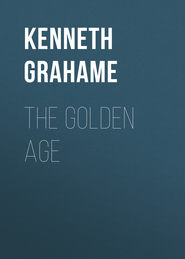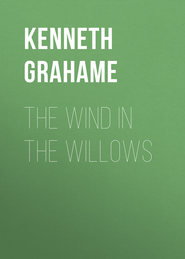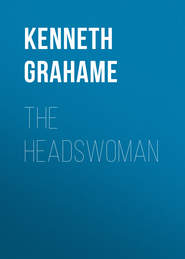По всем вопросам обращайтесь на: info@litportal.ru
(©) 2003-2025.
✖
Dream Days
Настройки чтения
Размер шрифта
Высота строк
Поля
When at last I brought myself back from the future to the actual present, I found that these delectable visions had helped me over a longer stretch of road than I had imagined; and I looked around and took my bearings. To the right of me was a long low building of grey stone, new, and yet not smugly so; new, and yet possessing distinction, marked with a character that did not depend on lichen or on crumbling semi-effacement of moulding and mullion. Strangers might have been puzzled to classify it; to me, an explorer from earliest years, the place was familiar enough. Most folk called it "The Settlement"; others, with quite sufficient conciseness for our neighbourhood, spoke of "them there fellows up by Halliday's"; others again, with a hint of derision, named them the "monks." This last title I supposed to be intended for satire, and knew to be fatuously wrong. I was thoroughly acquainted with monks – in books – and well knew the cut of their long frocks, their shaven polls, and their fascinating big dogs, with brandy-bottles round their necks, incessantly hauling happy travellers out of the snow. The only dog at the settlement was an Irish terrier, and the good fellows who owned him, and were owned by him, in common, wore clothes of the most nondescript order, and mostly cultivated side-whiskers. I had wandered up there one day, searching (as usual) for something I never found, and had been taken in by them and treated as friend and comrade. They had made me free of their ideal little rooms, full of books and pictures, and clean of the antimacassar taint; they had shown me their chapel, high, hushed, and faintly scented, beautiful with a strange new beauty born both of what it had and what it had not – that too familiar dowdiness of common places of worship. They had also fed me in their dining-hall, where a long table stood on trestles plain to view, and all the woodwork was natural, unpainted, healthily scrubbed, and redolent of the forest it came from. I brought away from that visit, and kept by me for many days, a sense of cleanness, of the freshness that pricks the senses – the freshness of cool spring water; and the large swept spaces of the rooms, the red tiles, and the oaken settles, suggested a comfort that had no connexion with padded upholstery.
On this particular morning I was in much too unsociable a mind for paying friendly calls. Still, something in the aspect of the place harmonized with my humor, and I worked my way round to the back, where the ground, after affording level enough for a kitchen-garden, broke steeply away. Both the word Gothic and the thing itself were still unknown to me; yet doubtless the architecture of the place, consistent throughout, accounted for its sense of comradeship in my hour of disheartenment. As I mused there, with the low, grey, purposeful-looking building before me, and thought of my pleasant friends within, and what good times they always seemed to be having, and how they larked with the Irish terrier, whose footing was one of a perfect equality, I thought of a certain look in their faces, as if they had a common purpose and a business, and were acting under orders thoroughly recognised and understood. I remembered, too, something that Martha had told me, about these same fellows doing "a power o' good," and other hints I had collected vaguely, of renouncements, rules, self denials, and the like. Thereupon, out of the depths of my morbid soul swam up a new and fascinating idea; and at once the career of arms seemed over-acted and stale, and piracy, as a profession, flat and unprofitable. This, then, or something like it, should be my vocation and my revenge. A severer line of business, perhaps, such as I had read of; something that included black bread and a hair-shirt. There should be vows, too – irrevocable, blood-curdling vows; and an iron grating. This iron grating was the most necessary feature of all, for I intended that on the other side of it my relations should range themselves – I mentally ran over the catalogue, and saw that the whole gang was present, all in their proper places – a sad-eyed row, combined in tristful appeal. "We see our error now," they would say; "we were always dull dogs, slow to catch – especially in those akin to us – the finer qualities of soul! We misunderstood you, misappreciated you, and we own up to it. And now – " "Alas, my dear friends," I would strike in here, waving towards them an ascetic hand – one of the emaciated sort, that lets the light shine through at the finger-tips – "Alas, you come too late! This conduct is fitting and meritorious on your part, and indeed I always expected it of you, sooner or later; but the die is cast, and you may go home again and bewail at your leisure this too tardy repentance of yours. For me, I am vowed and dedicated, and my relations henceforth are austerity and holy works. Once a month, should you wish it, it shall be your privilege to come and gaze at me through this very solid grating; but – " Whack!
A well aimed clod of garden soil, whizzing just past my ear, starred on a tree-trunk behind, spattering me with dirt. The present came back to me in a flash, and I nimbly took cover behind the trees, realising that the enemy was up and abroad, with ambuscades, alarms, and thrilling sallies. It was the gardener's boy, I knew well enough; a red proletariat, who hated me just because I was a gentleman. Hastily picking up a nice sticky clod in one hand, with the other I delicately projected my hat beyond the shelter of the tree-trunk. I had not fought with Red-skins all these years for nothing.
As I had expected, another clod, of the first class for size and stickiness, took my poor hat full in the centre. Then, Ajax-like, shouting terribly, I issued from shelter and discharged my ammunition. Woe then for the gardener's boy, who, unprepared, skipping in premature triumph, took the clod full in his stomach! He, the foolish one, witless on whose side the gods were fighting that day, discharged yet other missiles, wavering and wide of the mark; for his wind had been taken with the first clod, and he shot wildly, as one already desperate and in flight. I got another clod in at short range; we clinched on the brow of the hill, and rolled down to the bottom together. When he had shaken himself free and regained his legs, he trotted smartly off in the direction of his mother's cottage; but over his shoulder he discharged at me both imprecation and deprecation, menace mixed up with an under-current of tears.
But as for me, I made off smartly for the road, my frame tingling, my head high, with never a backward look at the Settlement of suggestive aspect, or at my well-planned future which lay in fragments around it. Life had its jollities, then; life was action, contest, victory! The present was rosy once more, surprises lurked on every side, and I was beginning to feel villainously hungry.
Just as I gained the road a cart came rattling by, and I rushed for it, caught the chain that hung below, and swung thrillingly between the dizzy wheels, choked and blinded with delicious-smelling dust, the world slipping by me like a streaky ribbon below, till the driver licked at me with his whip, and I had to descend to earth again. Abandoning the beaten track, I then struck homewards through the fields; not that the way was very much shorter, but rather because on that route one avoided the bridge, and had to splash through the stream and get refreshingly wet. Bridges were made for narrow folk, for people with aims and vocations which compelled abandonment of many of life's highest pleasures. Truly wise men called on each element alike to minister to their joy, and while the touch of sun-bathed air, the fragrance of garden soil, the ductible qualities of mud, and the spark-whirling rapture of playing with fire, had each their special charm, they did not overlook the bliss of getting their feet wet. As I came forth on the common Harold broke out of an adjoining copse and ran to meet me, the morning rain-clouds all blown away from his face. He had made a new squirrel-stick, it seemed. Made it all himself; melted the lead and everything! I examined the instrument critically, and pronounced it absolutely magnificent. As we passed in at our gate the girls were distantly visible, gardening with a zeal in cheerful contrast to their heartsick lassitude of the morning. "There's bin another letter come to-day," Harold explained, "and the hamper got joggled about on the journey, and the presents worked down into the straw and all over the place. One of 'em turned up inside the cold duck. And that's why they weren't found at first. And Edward said, Thanks awfully!"
I did not see Martha again until we were all re-assembled at tea-time, when she seemed red-eyed and strangely silent, neither scolding nor finding fault with anything. Instead, she was very kind and thoughtful with jams and things, feverishly pressing unwonted delicacies on us, who wanted little pressing enough. Then suddenly, when I was busiest, she disappeared; and Charlotte whispered me presently that she had heard her go to her room and lock herself in. This struck me as a funny sort of proceeding.
MUTABILE SEMPER
SHE stood on the other side of the garden fence, and regarded me gravely as I came down the road. Then she said, "Hi-o!" and I responded, "Hullo!" and pulled up somewhat nervously.
To tell the truth, the encounter was not entirely unexpected on my part. The previous Sunday I had seen her in church, and after service it had transpired who she was, this newcomer, and what aunt she was staying with. That morning a volunteer had been called for, to take a note to the Parsonage, and rather to my own surprise I had found myself stepping forward with alacrity, while the others had become suddenly absorbed in various pursuits, or had sneaked unobtrusively out of view. Certainly I had not yet formed any deliberate plan of action; yet I suppose I recollected that the road to the Parsonage led past her aunt's garden.
She began the conversation, while I hopped backwards and forwards over the ditch, feigning a careless ease.
"Saw you in church on Sunday," she said, "only you looked different then. All dressed up, and your hair quite smooth, and brushed up at the sides, and oh, so shiny! What do they put on it to make it shine like that? Don't you hate having your hair brushed?" she ran on, without waiting for an answer. "How your boots squeaked when you came down the aisle! When mine squeak, I walk in all the puddles till they stop. Think I'll get over the fence."
This she proceeded to do in a business-like way, while, with my hands deep in my pockets, I regarded her movements with silent interest, as those of some strange new animal.
"I've been gardening," she explained, when she had joined me, "but I didn't like it. There's so many worms about to-day. I hate worms. Wish they'd keep out of the way when I'm digging."
"Oh, I like worms when I'm digging," I replied heartily, "seem to make things more lively, don't they?"
She reflected. "Shouldn't mind 'em so much if they were warm and dry," she said, "but – " here she shivered, and somehow I liked her for it, though if it had been my own flesh and blood hoots of derision would have instantly assailed her.
From worms we passed, naturally enough, to frogs, and thence to pigs, aunts, gardeners, rocking-horses, and other fellow-citizens of our common kingdom. In five minutes we had each other's confidences, and I seemed to have known her for a lifetime. Somehow, on the subject of one's self it was easier to be frank and communicative with her than with one's female kin. It must be, I supposed, because she was less familiar with one's faulty, tattered past.
"I was watching you as you came along the road," she said presently, "and you had your head down and your hands in your pockets, and you weren't throwing stones at anything, or whistling, or jumping over things; and I thought perhaps you'd bin scolded, or got a stomach-ache."
"No," I answered shyly, "it wasn't that. Fact is, I was – I often – but it's a secret."
There I made an error in tactics. That enkindling word set her dancing round me, half beseeching, half imperious. "Oh, do tell it me!" she cried. "You must! I'll never tell anyone else at all, I vow and declare I won't!"
Her small frame wriggled with emotion, and with imploring eyes she jigged impatiently just in front of me. Her hair was tumbled bewitchingly on her shoulders, and even the loss of a front tooth – a loss incidental to her age – seemed but to add a piquancy to her face.
"You won't care to hear about it," I said, wavering. "Besides, I can't explain exactly. I think I won't tell you." But all the time I knew I should have to.
"But I do care," she wailed plaintively. "I didn't think you'd be so unkind!"
This would never do. That little downward tug at either corner of the mouth – I knew the symptom only too well!
"It's like this," I began stammeringly. "This bit of road here – up as far as that corner – you know it's a horrid dull bit of road. I'm always having to go up and down it, and I know it so well, and I'm so sick of it. So whenever I get to that corner, I just – well, I go right off to another place!"
"What sort of a place?" she asked, looking round her gravely.
"Of course it's just a place I imagine," I went on hurriedly and rather shamefacedly: "but it's an awfully nice place – the nicest place you ever saw. And I always go off there in church, or during joggraphy lessons."
"I'm sure it's not nicer than my home," she cried patriotically. "Oh, you ought to see my home – it's lovely! We've got – "
"Yes it is, ever so much nicer," I interrupted. "I mean" – I went on apologetically – "of course I know your home's beautiful and all that. But this must be nicer, 'cos if you want anything at all, you've only got to want it, and you can have it!"
"That sounds jolly," she murmured. "Tell me more about it, please. Tell me how you get there, first."
"I – don't – quite – know – exactly," I replied. "I just go. But generally it begins by – well, you're going up a broad, clear river in a sort of a boat. You're not rowing or anything – you're just moving along. And there's beautiful grass meadows on both sides, and the river's very full, quite up to the level of the grass. And you glide along by the edge. And the people are haymaking there, and playing games, and walking about; and they shout to you, and you shout back to them, and they bring you things to eat out of their baskets, and let you drink out of their bottles; and some of 'em are the nice people you read about in books. And so at last you come to the Palace steps – great broad marble steps, reaching right down to the water. And there at the steps you find every sort of boat you can imagine – schooners, and punts, and row-boats, and little men-of-war. And you have any sort of boating you want to – rowing, or sailing, or shoving about in a punt!"
"I'd go sailing," she said decidedly, "and I'd steer. No, you'd have to steer, and I'd sit about on the deck. No, I wouldn't though; I'd row – at least I'd make you row, and I'd steer. And then we'd – Oh, no! I'll tell you what we'd do! We'd just sit in a punt and dabble!"
"Of course we'll do just what you like," I said hospitably; but already I was beginning to feel my liberty of action somewhat curtailed by this exigent visitor I had so rashly admitted into my sanctum.
"I don't think we'd boat at all," she finally decided. "It's always so wobbly. Where do you come to next?"
"You go up the steps," I continued, "and in at the door, and the very first place you come to is the Chocolate-room!"
She brightened up at this, and I heard her murmur with gusto, "Chocolate-room!"
"It's got every sort of chocolate you can think of," I went on: "soft chocolate, with sticky stuff inside, white and pink, what girls like; and hard shiny chocolate, that cracks when you bite it, and takes such a nice long time to suck!"
"I like the soft stuff best," she said: "'cos you can eat such a lot more of it!"
This was to me a new aspect of the chocolate question, and I regarded her with interest and some respect. With us, chocolate was none too common a thing, and, whenever we happened to come by any, we resorted to the quaintest devices in order to make it last out. Still, legends had reached us of children who actually had, from time to time, as much chocolate as they could possibly eat; and here, apparently, was one of them.
"You can have all the creams," I said magnanimously, "and I'll eat the hard sticks, 'cos I like 'em best."
"Oh, but you mustn't!" she cried impetuously. "You must eat the same as I do! It isn't nice to want to eat different. I'll tell you what – you must give me all the chocolate, and then I'll give you– I'll give you what you ought to have!"
"Oh, all right," I said in a subdued sort of way. It seemed a little hard to be put under a sentimental restriction like this in one's own Chocolate-room.
"In the next room you come to," I proceeded, "there's fizzy drinks! There's a marble-slab business all round the room, and little silver taps; and you just turn the right tap, and have any kind of fizzy drink you want."
"What fizzy drinks are there?" she inquired.
"Oh, all sorts," I answered hastily, hurrying on. (She might restrict my eatables, but I'd be hanged if I was going to have her meddle with my drinks.) "Then you go down the corridor, and at the back of the palace there's a great big park – the finest park you ever saw. And there's ponies to ride on, and carriages and carts; and a little railway, all complete, engine and guard's van and all; and you work it yourself, and you can go first-class, or in the van, or on the engine, just whichever you choose."
"I'd go on the engine," she murmured dreamily. "No, I wouldn't, I'd – "
"Then there's all the soldiers," I struck in. Really the line had to be drawn somewhere, and I could not have my railway system disorganised and turned upside down by a mere girl. "There's any quantity of 'em, fine big soldiers, and they all belong to me. And a row of brass cannons all along the terrace! And every now and then I give the order, and they fire off all the guns!"
"No, they don't," she interrupted hastily. "I won't have 'em fire off any guns! You must tell 'em not to. I hate guns, and as soon as they begin firing I shall run right away!"
"But – but that's what they're there for," I protested, aghast.
"I don't care," she insisted. "They mustn't do it. They can walk about behind me if they like, and talk to me, and carry things. But they mustn't fire off any guns."












